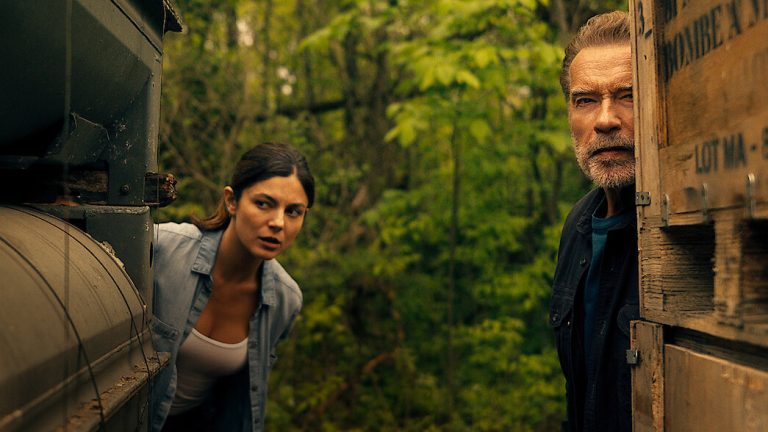Life. It is not as cracked up as cheerful commercials have you believe. In “Some Rain Must Fall,” director Qiu Yang talks about melancholy and trials that creep up on you while you busy yourself with tasks and responsibilities. Seeped in gloom but beautifully framed, this debut feature of Qiu Yang is a contemplative look into the struggles of ‘adulting.’ After a series of short films, especially the Cannes-recognized “A Gentle Night,” “Some Rain Must Fall” is an auspicious beginning for Yang’s feature filmmaking career.
Yang, who also wrote the screenplay, focuses on a diligent middle-aged woman who barely keeps it together. Cai (Yu Aier) is perpetually on the brink of a massive breakdown. Life has become an overwhelming chore. She struggles to escape the all-consuming negativity she has found herself surrounded by. “Some Rain Must Fall” is a collage of melancholy and trials of human life. It depicts how life starts to crumble as dreams and hope begin to fade.
It is not just one thing that can cause this. Yang rightfully paints with layers that construct Cai’s life’s pitiful picture. First, we see the personal turmoil. Cai is immediately shown to have a frosty relationship with her daughter, Lin (Di Shike). While picking up Lin from Basketball practice, a stray ball hits Cai. Out of frustration, which is not primarily due to the basketball, she throws the ball back with all her strength. It hits an old woman, and she is hospitalized. Talk about never being able to catch a break.
This event, shown in the initial few minutes, both triggers and highlights what we proceed to see in “Some Rain Must Fall.” It is the layer of responsibilities and relationships that gets peeled away in this tale of Cai’s decaying mental health. Right after the unfortunate woman’s hospitalization, we find that Cai and her husband, Ding (Wei Yibo), are heading for a divorce, seemingly at Cai’s insistence. Yang, with his cinematographer, Constanze Schmitt, carefully constructs each scene to represent Cai’s futile attempts at finding answers to questions she does not recognize. Cai’s burgeoning responsibilities entrap her. Responsibilities towards her ailing mother-in-law add to her responsibility to raise Lin. Ding is shown to be an oblivious husband who completely delegates familial responsibility to Cai.

Then, there are the societal responsibilities that come with their upper-middle-class lifestyle. Ding often reminds everyone that Cai belongs to a higher strata of society now. She should not be associated with ‘peasants,’ in Ding’s words. Cai’s parents are branded the same. Cai has a failed relationship with her parents due to a past incident — a secret that shaped her life and every relationship she encounters later in life. As if all of these were not enough, her sexuality also becomes a thing weighing on her mind. There is palpable tension between her and the housekeeper. Both women seem to be tantalizingly close, giving in to their desires. But Cai withdraws.
Understandably the film is anchored by the performance of Yu Aier. She carries a suicidal self-loathing in her perfectly measured turn that emanates Cai’s depression perfectly. Aier enforces Cai’s almost-breakdown. It comes as no surprise that Cai contemplates self-harm. The supporting cast is natural in evoking empathy, especially Di Shike as Lin, a child who is tormented by the failed relationship between her parents. “Some Rain Must Fall” has long, evocative takes that rely on the actors’ facial expressions, particularly those of Aier and Shike.
Yang’s meditatively slow pace gives us plenty of time to take in Schmitt’s beautifully despondent images. Yang wants the audience to patiently immerse themselves in this process of seeing life crumble. Schmitt paints it so captivatingly that one simply cannot look away. Yang ends the film with a poignantly subtle ray of hope. Some rain does fall, and Cai is seemingly out of her marriage. Is she truly free? Perhaps not. But after showing her harming herself with hot water, it is a bit reassuring that she takes the time out to visit a dentist. It is a sign of self-care that we have not seen her partake in at all. Her attempts to visit the old woman, who was injured by the basketball ball, is another tell-tale sign.

![The Only Son [1936] Review – The Characteristic Ozu Style at its Nascent Stage](https://79468c92.delivery.rocketcdn.me/wp-content/uploads/2019/08/The-Only-Son-1936-768x576.jpeg)




![Three Headed Beast [2022]: ‘Tribeca’ Review – A Quiet And Sensual Examination Of Open Relationships](https://79468c92.delivery.rocketcdn.me/wp-content/uploads/2022/06/THREE-HEADED-BEAST-768x432.png)